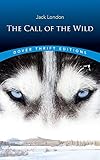
The novel's preeminence derives from its wonderfully imaginative re-creation of boyhood adventures along the Mississippi River, its inspired characterization, the author's remarkable ear for dialogue, and the book's understated development of serious underlying themes: "natural" man versus "civilized" society, the evils of slavery, the innate value and dignity of human beings, and other topics. Most of all, Huckleberry Finn is a wonderful story, filled with high adventure and unforgettable characters.

Set in the eighteenth century, Treasure Island spins a heady tale of piracy, a mysterious treasure map, and a host of sinister characters charged with diabolical intentions. Seen through the eyes of Jim Hawkins, the cabin boy of the Hispaniola, the action-packed adventure tells of a perilous sea journey across the Spanish Main, a mutiny led by the infamous Long John Silver, and a lethal scramble for buried treasure on an exotic isle.
Rich in atmosphere and character, Treasure Island continues to mesmerize readers with its perceptive views of the changing nature of human motives.


The hero-narrator of THE CATCHER IN THE RYE is an ancient child of sixteen, a native New Yorker named Holden Caulfield. Through circumstances that tend to preclude adult, secondhand description, he leaves his prep school in Pennsylvania and goes underground in New York City for three days.
The boy himself is at once too simple and too complex for us to make any final comment about him or his story. Perhaps the safest thing we can say about Holden is that he was born in the world not just strongly attracted to beauty but, almost, hopelessly impaled on it.
There are many voices in this novel: children's voices, adult voices, underground voices--but Holden's voice is the most eloquent of all. Transcending his own vernacular, yet remaining marvelously faithful to it, he issues a perfectly articulated cry of mixed pain and pleasure. However, like most lovers and clowns and poets of the higher orders, he keeps most of the pain to, and for, himself. The pleasure he gives away, or sets aside, with all his heart. It is there for the reader who can handle it to keep.

Jack London's novels and ruggedly individual life seemed to embody American hopes, frustrations, and romantic longings in the turbulent first years of the twentieth century, years infused with the wonder and excitement of great technological and historic change. The author's restless spirit, taste for a life of excitement, and probing mind led him on a series of hard-edged adventures from the Klondike to the South Seas. Out of these sometimes harrowing experiences — and his fascination with the theories of such thinkers as Darwin, Spencer, and Marx — came the inspiration for novels of adventure that would make him one of America’s most popular writers.
The Call of the Wild, considered by many London's greatest novel, is a gripping tale of a heroic dog that, thrust into the brutal life of the Alaska Gold Rush, ultimately faces a choice between living in man's world and returning to nature. Adventure and dog-story enthusiasts as well as students and devotees of American literature will find this classic work a thrilling, memorable reading experience.

Countless scholars have tried to define the charm of the Alice books—with those wonderfully eccentric characters the Queen of Hearts, Tweedledum, and Tweedledee, the Cheshire Cat, Mock Turtle, the Mad Hatter et al.—by proclaiming that they really comprise a satire on language, a political allegory, a parody of Victorian children’s literature, even a reflection of contemporary ecclesiastical history.
Perhaps, as Dodgson might have said, Alice is no more than a dream, a fairy tale about the trials and tribulations of growing up—or down, or all turned round—as seen through the expert eyes of a child.


Spirited, romantic, and full of danger, Kidnapped is Robert Louis Stevenson's classic of high adventure. Beloved by generations, it is the saga of David Balfour, a young heir whose greedy uncle connives to do him out of his inherited fortune and plots to have him seized and sold into slavery. But honor, loyalty, and courage are rewarded; the orphan and castaway survives kidnapping and shipwreck, is rescued by a daredevil of a rogue, and makes a thrilling escape to freedom across the wild highlands of Scotland.




Her eighth grade science class heads out into the wilderness on a field trip, eager for the coming summer and freshman year of high school beyond. Their lives, however, are about to be irrevocably changed in ways they could never imagine...
Jenni and her classmates become pitted against nefarious forces-- and even each other-- in their quests to find a way home and discover just who-- and what-- they really are.
Goblins and fairies and dragons-- oh my!



Gemini is a teenage human boy who is thrust into Toonopolis through his father's scientific research program. He loses part of himself in the process and immediately begins a quest to regain his lost memories with the help of his Tooniverse guide named Jimbob the Talking Eggplant.
After an altercation with a mysterious Shadowy Figure, Gemini's mission is changed, an he begins a new quest to defeat Shadowy Figure and protect Toonopolis from his nefarious destruction. Along the way, he meets new friends, discovers just how diverse and strange Toonopolis is, and learns lessons about compassion, forgiveness, redemption, and being true to oneself.

First Contact story; it is part adventure and part corporate and political satire spiced with comic relief.
Here, you'll find nasty, snarly aliens, fantasy creatures, humans, romance, magic, and--just like the
real world--incompetent politicians and feuding bureaucracies. What more could a fantasy/scifi reader ask for?
Aliens, fantasy creatures and humans in one story? They don't mix very well. Neither do untrustworthy aliens and
deceitful government bureaucrats.
